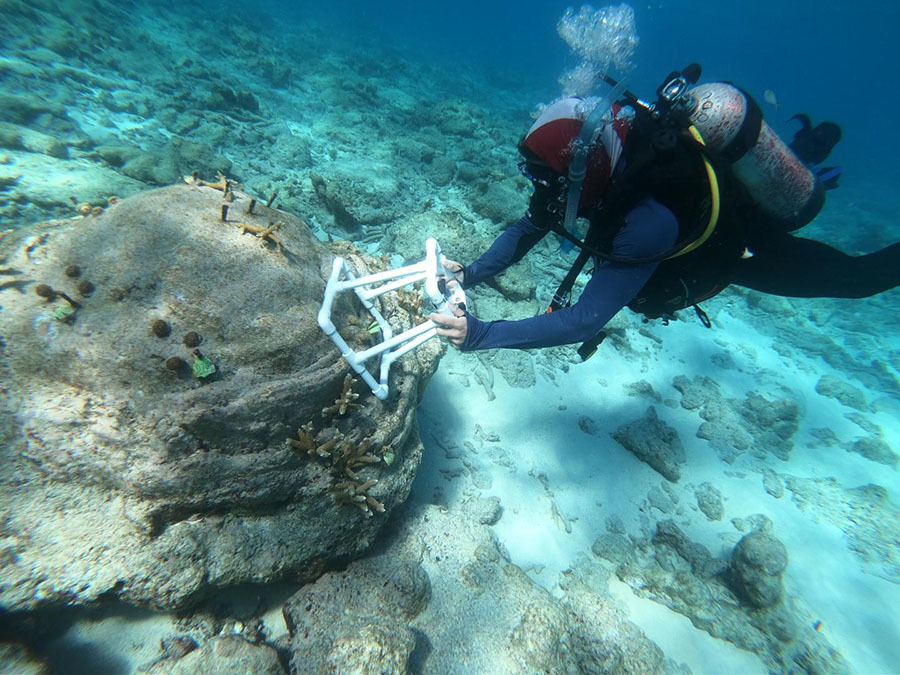Marine biologists at Florida International University have found that crabs in the Caribbean can help restore degrading coral reefs.
This is reported in the journal Current Biology.
For 30 years, a team of American biologists have studied the fauna of the coral Caribbean islands and the Florida Keys, which are the third longest Great Florida Reef in the world.
To restore the local ecosystem, scientists conducted a series of experiments to populate the reefs with crabs.
Like other tropical reefs around the world, the coral reefs of the Caribbean are plagued by climate change, pollution and other anthropogenic factors.
To combat algae and further restore reefs, the researchers decided to use an unusual "remedy" - large local crabs living among corals.
As shown by the results of experiments carried out on isolated areas of the coral reef, the crab population actively absorbs all types of algae and does not allow them to grow.
Control over the course of the experiment
© Mark Butler
Experiments with increasing numbers of large native herbivorous crabs in the coral archipelago of the Florida Keys have led to a rapid reduction in algae cover, as well as the return of small corals and fish to these reefs within about a year.
This opens up new opportunities for the restoration of coral reefs, ”- said the study author, researcher at Florida International University Mark Butler.
Scientists conducted their first experiments back in 2014-2015 on 12 isolated areas of a coral reef.
These calcareous organogenic geological structures have been divided into three groups: an intact reference reef, a crab-infested reef, and a crab-infested reef pre-de-algae by divers.
The results of the study, which lasted about a year, showed that the control reef overgrown with algae did not undergo changes.
In the second section, the crabs ate half of all the algae, and in the third, the algae decreased by about 80%.
At the same time, the effect of cleaning the reef by divers was short-lived, while it was crabs that prevented the algae from growing.
Recently, a similar experiment was carried out in other areas of the Florida Keys and showed equally impressive results.
Crabs alone reduced algae coverage by about 50%, and after preliminary "weeding" by people - by 70%.
Scientists are confident that their "crab" method can be massively applied to restore tropical coral reefs.
It will prepare dying and overgrown areas for replanting live coral polyps from the nursery, help control the algae population and create favorable conditions for the return of fish and other marine life.
The coral nurseries needed to revitalize the reefs have already been established, according to the researchers.
Currently, the team is collecting resources for a marine farm for growing crabs, since their number is not enough to maintain the balance of the ecosystem.

